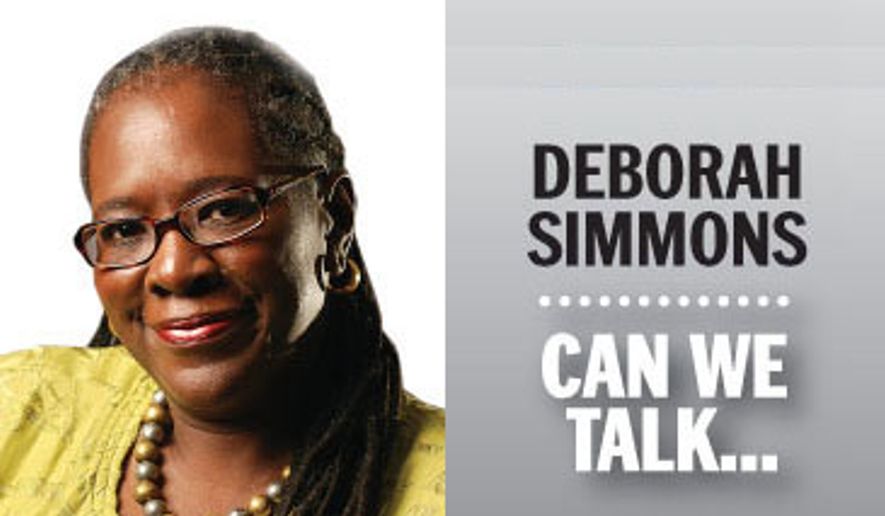ANALYSIS/OPINION:
On Sunday, the Democratic mayor of Baltimore, Stephanie Rawlings-Blake, talked about her city returning to “normal” because people were prancing around parts of Charm City as if Martha and the Vandellas had declared “summer’s here and the time is right for dancin’ in the street.” She also announced that the emergency curfew would be lifted.
On Monday, President Obama blamed the media for exposing how deep-blue Democratic politicians and policies had failed the people of Baltimore. What big-name Democrat is next in line to use Baltimoreans as props?
“I wouldn’t think of announcing [a presidential bid] anyplace else,” Martin O’Malley said of Baltimore. “We are not defeated as a city, and we are not about to throw in the towel on our country.”
For sure, Mr. O’Malley, 54, should be at the table should Democrats ever consider holding a forum titled “Where Did Our Liberal Policies Fail?” As a political operative, prosecutor, Baltimore City Council member, Baltimore mayor and Maryland governor he would have much to share — after all, he served two terms as mayor before serving two gubernatorial terms.
When rioters and looters took the streets a week ago, Mr. O’Malley was in Europe, where in London he had given a paid address and where in Ireland he planned to rake in more money by doing the same.
SEE ALSO: D.C. crime lab chief paints pricey future
By last Tuesday, Mr. O’Malley was on the ground in Baltimore, prepared to capitalize on media coverage of his legacy and its ties to his presidential aspirations. And those ties most assuredly should be scrutinized.
When Mr. O’Malley was a boy, Lyndon Baines Johnson and the Democratic Party’s “Great Society” policies kicked in. Today, 51.8 percent of Baltimore residents age 16 to 64 are unemployed, 60.7 percent of residents 25 or older do not have a high school diploma, and 1-in-4 families receives federal welfare. (The city also dispenses welfare.)
That’s a look at the human capital under decades of Democratic politicians and policies, now like at the entrenched politics.
Both Maryland senators are Democrats.
The state legislature runneth over with Democrats.
The very neighborhood torn asunder by violence last week is represented by yet another Democrat, Rep. Elijah E. Cummings, a former chairman of the Congressional Black Caucus.
SEE ALSO: D.C. Council plans to clarify reproductive health care law
Baltimore’s mayors have all been Democrats since the city’s first election following LBJ’s agenda for a Great Society.
Every single member of Baltimore’s City Council is a Democrat.
Individually, these officials’ politics and policies would likely do no harm. But when they move in lock-step, when they synchronize their talking points, when they propose more recreation programs to solve the problem, they cause a lot of harm.
Baltimore, Maryland’s largest city, needs a change of venue. While its denizens don purple every chance they get to root for their beloved Ravens NFL team, they aren’t going to turn the entire city purple overnight.
You know the adage “Be careful what you wish for, lest it come true.” Mr. O’Malley needs to be mindful.
Today’s Baltimore of 622,000 residents is quite similar to the one he handed over to Democratic Mayor Sheila Dixon, who handed it over to another Democrat, Ms. Rawlings-Blake.
Mr. O’Malley wants you to think his public-safety policies were aligned with those of Republican New York Mayor Rudy Giuliani. Mr. O’Malley wants you to think Baltimore, a former blue-collar city of ethnic neighborhoods, turned the corner when he was CEO. He wants you to think that his becoming president would improve the lot of black America and urban areas.
Mr. O’Malley wants you to think that as president he would stomp out urban decay like those rioting Baltimore hoodlums stomped automobiles. He wants you to think practice — prosecutor, political operative, councilman, mayor, governor — makes perfect.
Well, it does not.
Motown is not what it used to be, and personal responsibility is not among Democrats’ talking points — and don’t you forget it.
• Deborah Simmons can be reached at dsimmons@washingtontimes.com.
• Deborah Simmons can be reached at dsimmons@washingtontimes.com.




Please read our comment policy before commenting.